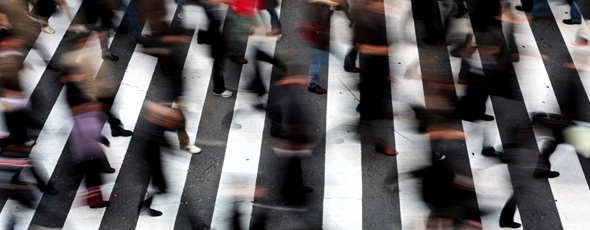
“Hollaback” is an international movement to end street harassment. ¡Atrévete! BA is the Buenos Aires branch, which launched in early 2011. We are one of over 50 partner sites around the world. As an Argentine feminist with connections in the UK, I appreciated the idea of a global movement with local focus and leadership. This is why I founded our local site with help from other feminists from my community.
Shortly after launching, we ran a campaign which called for the dismissal of a writer who, in response to our work, launched a direct and vocal rape threat towards me in a popular weekly magazine. I decided I could either keep my head down and let it go, or I could use it as an opportunity to show that we do not need to keep schtum when we experience any kind of sexual violence, no matter how normalised it is in our own community or culture. As womyn we are often encouraged to keep these experiences to ourselves, to ‘keep the peace’ for the ‘greater good’. However, what ‘greater good’ could possibly exist when the womyn (or men, or children) who are sexually abused or harassed are expected to hide? No real revolution worth having can come from this; it is paramount that we visibly sanction such abuses.
Our campaign outed this man as a misogynist and, as a result, he lost his job at the magazine. Although he exploited the publicity and was offered a reality show on an internet TV station, we were able to show, in a public way, that it is okay to act when someone behaves violently towards you. We can use their tools against them to challenge violence no matter what forms it takes – physical, sexual, economic, psychological and emotional (manipulation, blackmail, gaslighting), and symbolic (the media playing a big role in cultivating damaging meanings which determine hierarchies of power).
A year on from launching our campaign, the term ‘street harassment’ (acoso callejero) has entered popular vocabulary. We have also started to focus our objectives on work ‘on the ground.’ In a collaborative effort with a group of diverse activists, a feminist self-defence collective has been created. It teaches emotional, physical and psychological self-defence in a trans-inclusive, womyn-only safe space. We have discovered that most self-defence classes for womyn are led by male instructors, with the very patriarchal premise that because most attackers will be male and men are ‘stronger,’ we need a male instructor to teach us. This only serves to reinforce the myth of the ‘weaker female’ and the false premise that womyn cannot be as physically strong as men. We aim to challenge that perception by having womyn instructors – womyn who regularly fight in tournaments. They are definitely ready for action!
Our strategy is threefold. First, we have trained instructors who teach us techniques from the martial arts, for instance jujitsu (useful when confronting the Argentine police who are also trained in this), Krav-Maga and kick boxing. As well as providing a light, fun-filled environment, self-defence strengthens our self-esteem and belief in our bodies. Although some exercises can be challenging, the creative and flexible environment allows us to think up new ways of doing things. If someone feels uncomfortable with a task it is okay to sit out, and we are able to talk to each other about why something has made us uncomfortable. This makes a real difference for people who have experienced abuse. Secondly, we do trust and boundary exercises, also very helpful for those who have experienced violence. Finally, we have discussions which can range from the theoretical, to inspirational figures from history, to talking about our own experiences.
In order to defeat feelings of submissiveness or dependence, we also believe other types of practical skills are necessary, such as plumbing and electrics, managing your finances and understanding your legal rights. Almost all societal institutions are patriarchal, even supposedly progressive ones as we have recently seen with the SWP. This is why we need to create alternative, self-organised, trans inclusive safe spaces to counteract the institutional violence; spaces where we can discuss our experiences, obtain important roles and share leadership in order to empower ourselves within spheres of rebellion. We need to embrace the more dangerous, angry and confrontational sides to our nature. Let us stop being afraid of ‘rocking the boat’ and begin to be excited about doing so!
By Inti Maria Tidball-Binz (@Feminist_Inti)

This work is licensed under a Creative Commons Attribution-NonCommercial-ShareAlike 3.0 Unported License.









